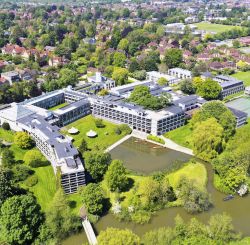- About
-
MF: Net Zero
- Projects
- Services
- M&E Engineering
- Net Zero Carbon
- Sustainability Consultancy
- Lighting Design
- Acoustics
- Passivhaus
- Soft Landings
- Wellbeing
- Light + Air
- Breeam and Leed Assessments
- Whole Life & Embodied Carbon
- Decarbonisation Plans
- BIM & Digital Engineering
- Building Physics & Modelling
- Post Occupancy Evaluation
- Environmental Design
- Planning Guidance
- Sustainable Masterplanning advice
- Utility Infrastructure
- People
- News
- MAX:R+I
- Contact
- Services
- Decarbonisation Plans
- Case Studies
Wolfson College, Oxford
We are working with Wolfson College, Oxford, to help them decarbonise their estate to achieve net zero by 2030 at the latest. We initially undertook a study into carbon-saving measures and discussed the range of options with the college. This resulted in an Energy Audit and Decarbonisation Plan that the college is planning to implement in phases. The first phase, completed in 2022, will reduce the carbon emissions of its estate by 75%.
In addition, we led the college's successful application to secure £5M of grant funding, which cover 65% of the first phase works. We are working with the college to help them promote and explain the project to their alumni and donors, to help them secure funding for the later phases of the work.
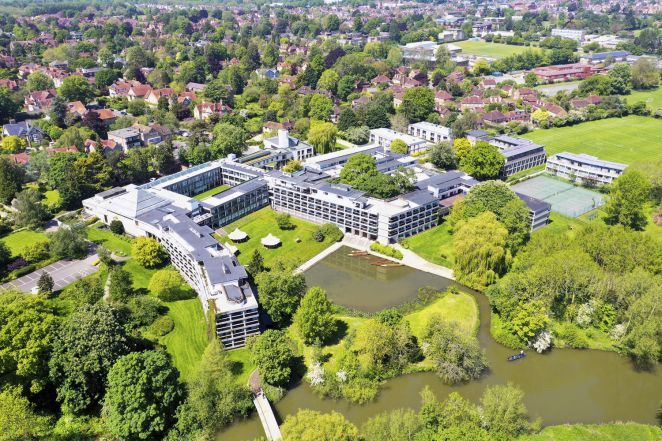 Info
Info
Newcastle Theatre Royal
The Newcastle Theatre Royal is a historic city centre building, built in the 1830s and Grade II listed. The building is poorly insulated and not very airtight. Each floor is independently heated and provided with hot water by a gas fired boiler. We developed a heat decarbonisation strategy during which we assessed a broad range of energy and carbon saving measures which resulted in a successful application for grant funding.
Technologies were assessed and selected based on the greatest impact that they would provide. Those selected included: replacing floor-by-floor gas boilers with a central heat pump; improving zoning and metering of the heating system; introducing secondary glazing and draught-proofing measures; replacing gas water heating with electric; and adding solar PV panels.
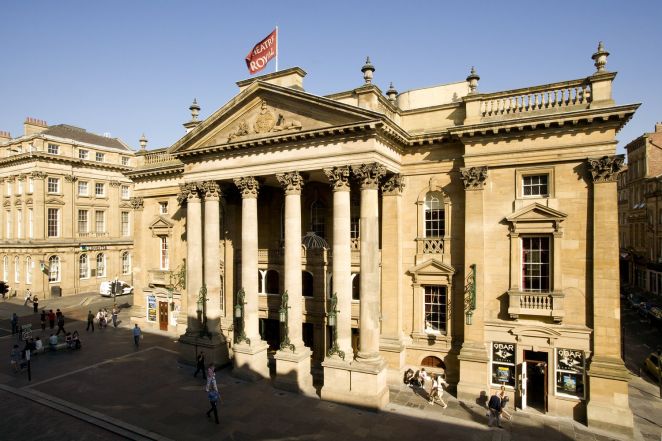 Info
Info
Science and Industry Museum, Manchester
The Science and Industry Museum in Manchester, part of the Science Museum Group (SMG), houses a dynamic museum display of steam-powered Victorian factory and mill machinery.
We worked with the museum to secure a £4.3M Salix Public Sector Decarbonisation Scheme grant, to be used not only to design a replacement for the existing gas-fired steam system (the scope of our original appointment) but also to decarbonise the entire site in line with SMG’s ambition to be net zero carbon by 2033.
We are now developing our designs to replace the gas-fired steam system with a new electric steam boiler and distribution system; to recover heat into the other visitor-facing exhibition spaces rather than rejecting it into the atmosphere; to install a Ground Source Heat Pump to heat the buildings when the steam system isn’t in use; and to install new heating, lighting, glazing and roof insulation to further reduce energy consumption and improve the visitor experience by removing and concealing clumsy modern interventions.
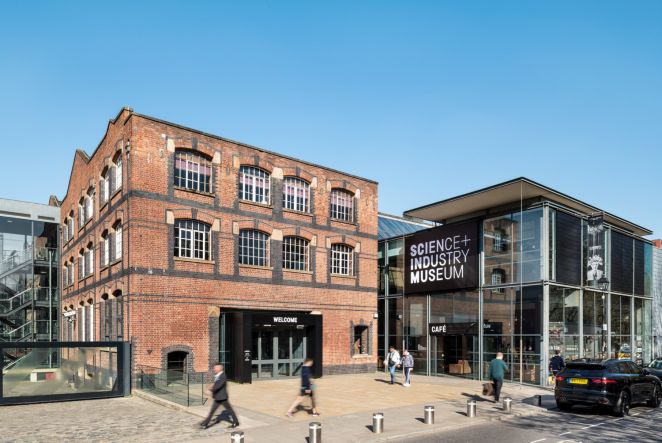 Info
Info
Harper Adams University
Harper Adams University, the UK's leading specialist university for the agri-food and rural business sectors, has commissioned us to lead the development of their decarbonisation strategy project and build on the work started under the University’s award-winning STEP project, which uses a series of renewable resources to help meet campus energy needs.
We are reviewing their existing installations and providing costed options to reduce and, in time, remove, gas use, and replace imported energy use with on-site renewables. We have produced plans – designed to fit into the schedules of a busy working college – to extend the campus’s new heating network so that their central biomass boiler can take more of the load, and to install a new large central heat pump to replace the existing CHP unit and local gas boilers.
 Info
Info
Islington Schools
We were employed by the London Borough of Islington to provide a decarbonisation plan for 20 primary schools within its estate. This is to inform their ambition to decarbonise the borough by 2030.
The work involved reviewing past information about the buildings and their operation to develop a picture of the current energy use; developing a model of the heat losses from the buildings to advise on fabric improvements and their associated reductions in energy consumption; and making proposals for the replacement of gas boilers with electric heat pumps. As well as the heat decarbonisation, options for other decarbonisation measures such as LED lighting, electric cooking and photovoltaic panels were reviewed. All of the options were costed and set against potential grant funding streams.
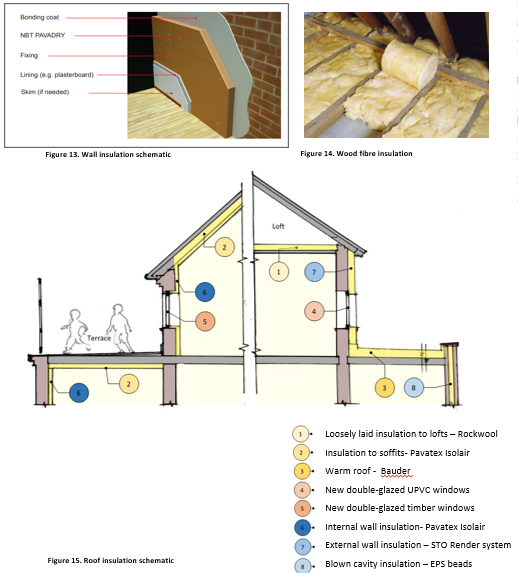 Info
Info
Decarbonisation Plans
- post@maxfordham.com
- +44 (0)20 7267 5161
- Twitter Instagram Linkedin
- Privacy Notice
- Legal
- © Max Fordham 2024
.jpg)
Max Fordham
MA(Cantab) FCIBSE HonFRIBA RDI OBE
17th June 1933 – 4th January 2022
Your creativity and passion will be sorely missed by us all.






